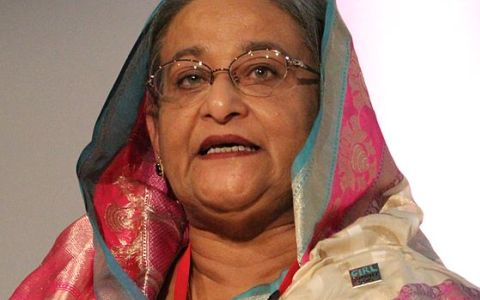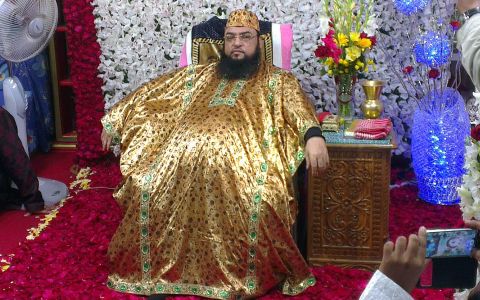Bangladesh’s tryst with ISIS
by - 6th July 2016

HOSTAGES inside the Holey Artisan Bakery, in the diplomatic zone in Dhaka, who couldn’t recite from the Quran were tortured and eventually murdered; those who could were assured that no harm would be done.
The Islamic State (ISIS) has claimed responsibility for the 2 July attack in the Bangladesh capital in which two Bangladeshis, nine Italians, seven Japanese, one American, and one Indian died.
These gruesome attacks come only weeks after Bangladesh’s Awami League government arrested nearly 150 suspected militants and more than 11,000 people said to be associated with various radical Islamic groups.
This was intended as a check on the spike in public violence and radicalization in this Muslim majority country.
Yet the opposition Bangladesh Nationalist Party (BNP) and Jamaat-e-Islami (Islamic Party) claim that most of those accused are innocent and the arrests were politically motivated.
Pollution
Since 2013, over 45 secular bloggers and homosexual activists have been killed by Islamic groups.
Increasingly Buddhists also are targeted, Christian Solidarity Worldwide reports. On 30 June, a Buddhist man named Mong Shwe Lung Marma, was murdered in Bandarban in a targeted killing similar in style to that of Daesh (Islamic State). The murder occurred in the same district where a Buddhist monk, Mongsowe U Chak, was killed on 14 May.
Islamic State, and in some instances Al Qaeda, have in recent years called on Bengal’s Muslims (including those in the Indian state of West Bengal) to take up arms, and have claimed responsibility for many of these attacks.
In November 2015, Dabiq, the English-language magazine published by ISIS, confirmed that the group had links with Jamaeytul Mujahdeen – a local Islamist terror outfit – in Bangladesh.
It plays predictably on the fear that Islam in Bangladesh is under threat and becoming increasingly polluted by Europeans and Hindus.
Bengal, ISIS claimed, ‘for hundreds of years has been drowned in shirk [polytheism] and bid'ah [innovations incompatible with Islam] due to the effects of both European colonization and Hindu cultural invasion.’
In the Dabiq piece ISIS also chastises BNP and Jamaat-e-Islami, whom it calls a ‘coalition of murtaddin [apostates], for they ‘foolishly thought that the call of Tawhid [oneness of God], jihad [holy war], and khilafah [caliphal rule by sharia law] would be crushed by the martyrdom of a few righteous scholars.’
Al-Qaeda and ISIS have also expressed their distrust of Jamaat-e-Islami for its links with the London and Istanbul-based Muslim Brotherhood.
Blame
Despite these claims of responsibility and statements, the Sheikh Hasina-led government continues to deny the organizational presence of these groups; it instead chooses to place the blame on its Islamist political rivals.
In the recent past, the Home Minister has spoken of how these accusations were an ‘international conspiracy’ against Bangladesh’s reputation and economic growth.
In September 2015, days before an Italian man was murdered in Dhaka, foreign intelligence agencies had warned the Bangladesh government of the threat of an attack by ISIS on ‘foreigners’ in the country.
Yet the government responded by claiming that such intelligence was flawed since 'ISIS did not have a presence in the country'.
Information minister, Hasanul Haq Inu in an interview with CNN, blamed everyone else: the major opposition BNP party for producing this violence; the largest Islamic party Jamaat-e-Islami for directing it; and Ansarullah Bangla Team (ABT) and other militant Islamic networks for acting upon it.
Identity
While internal political divisions have added to the growing crisis of Islamization in Bangladesh, at its heart is the self-identity of this nation-state.
Founded on the principles of secular ethno-linguistic nationalism, the Bengali-speaking majority was formerly known as East Pakistan until its independence from Pakistan in 1971.
A long and bloody war resulted, according to official estimates, in three million dead and 200,000 women raped.
But within a few years the principle of secularism was compromised and Islam was declared the state religion in 1988.
The impact of this is most tragically reflected in the declining number of Hindus in the country.
When British India was partitioned into Hindu-majority India and Muslim-majority Pakistan, by 1951 Hindus comprised 22 percent of the population. But years of violence and persecution has forced many Hindus to leave their homeland. Less than nine percent remain today.
Some observers argue that this changing demographic diminishes the need for a secular space in the country.
Yet, in response to political pressure from secularists and liberals, in 2009 the Awami League established the controversial International Crimes Tribunal to investigate and prosecute suspects for war crimes committed in 1971 by the Pakistan Army and their local collaborators.
Since then over two dozen people have been convicted and two leaders of the four Jamaat-e-Islami leaders have been executed, further fomenting tensions in the country.

Another important shift that has taken place in Bangladesh has been within Islam, whereby Sufism, which has had an important cultural and theological presence in Bangladesh, has been losing traction.
Even as Sufism is touted as the antidote to ISIS, the proponents of that tradition are one of the most harassed groups by ISIS and receive limited state support.
In May 2016, for instance, Mohammad Shahidullah, 65, a Sufi Muslim leader was brutally murdered in Bangladesh.
Such assessments also ignore the entrenched complexities of how Sufism is preached, practiced and controlled in the country.
Take for example, the popular self-styled ‘Sufi King’ the ‘Valiant Freedom Fighter and the Reviver of Muhammadi Islam Sufi Samrat Hazrat Maulana Mahbub-e-Khoda Dewanbagi (Madazilluhul Ali) Hujur Qibla’ who too has spoken of Islam being under attack in ‘our community’ because of the‘ignorance in our community and the conspiracy of the non-believers.’
Time and again, media and politicians have claimed that Islam, as practised in the Indian sub-continent is an unlikely candidate for radicalization – claiming the influence of Sufism’s humane tradition.
But the recent spike in violence and Bangladesh’s confusion about its identity calls for urgent re-thinking of that assumption.
Steven Selvaraj, South Asia Team Leader at Christian Solidarity Worldwide (CSW), has called for the government of Bangladesh to defend vigorously ‘civil society space’ in the country.
He said: ‘In this climate, religious minorities are especially vulnerable and we urge the government to honour its promise to defend religious freedom and to restore faith in the justice system.’
